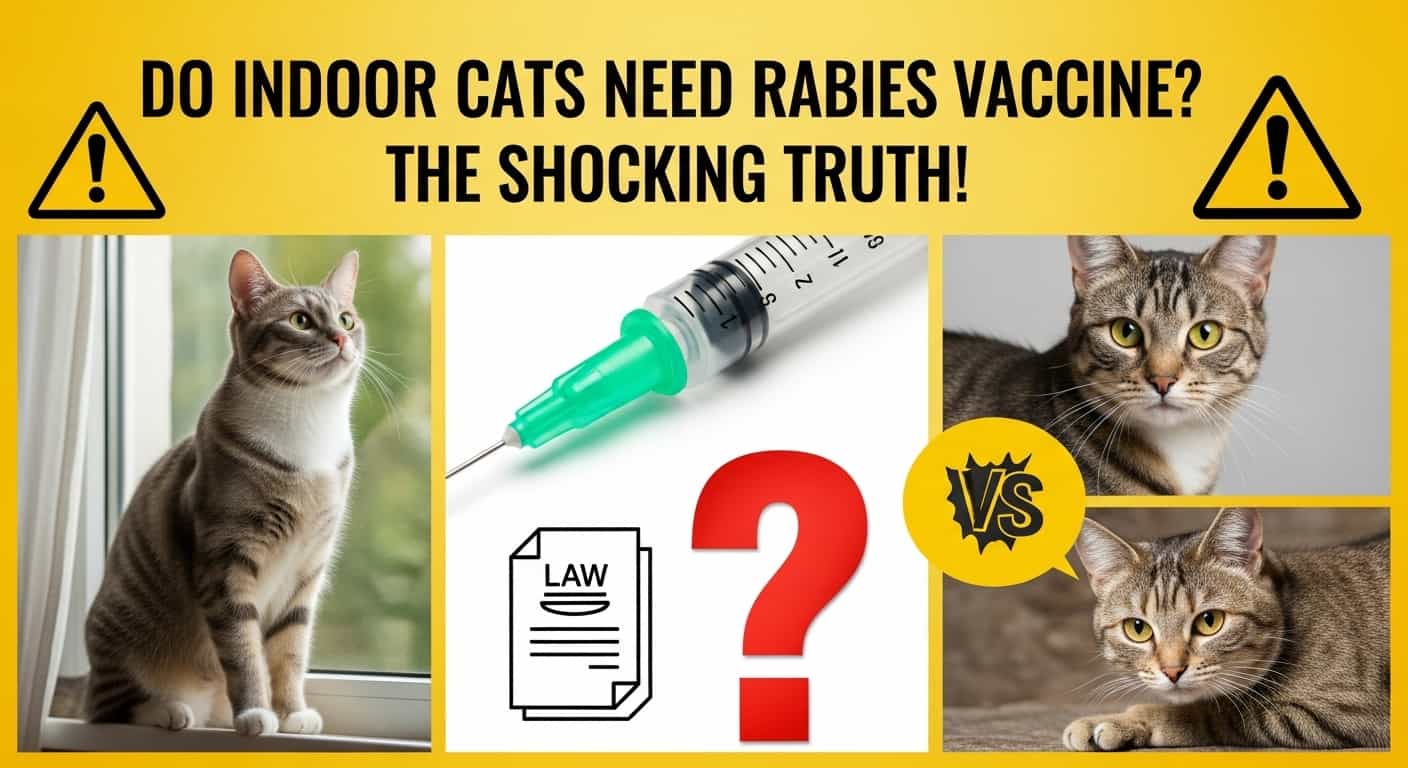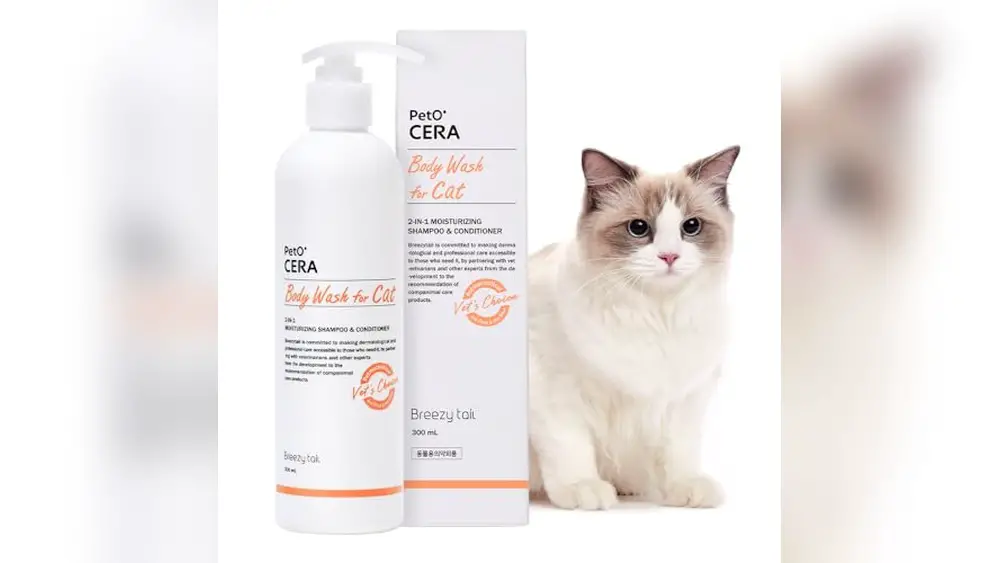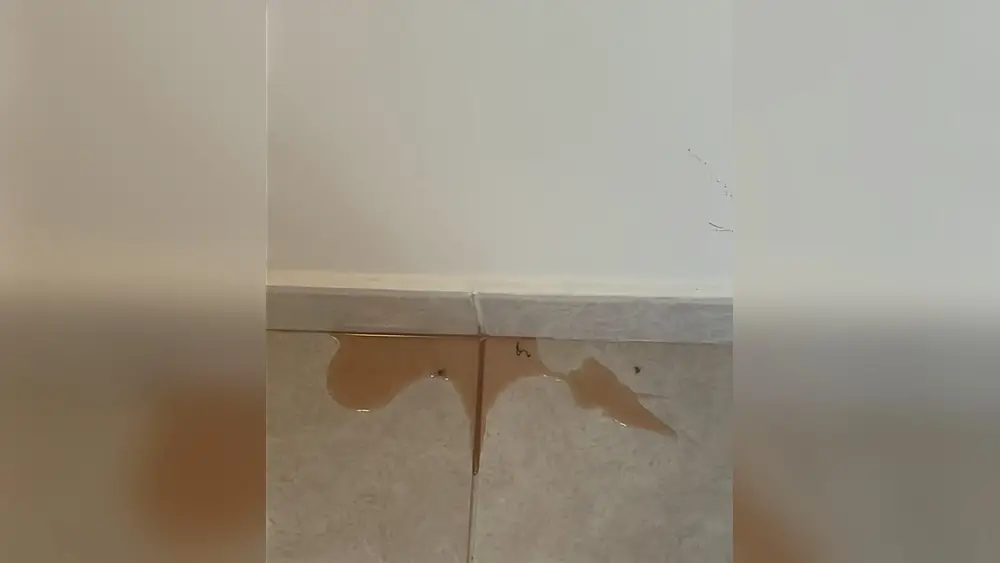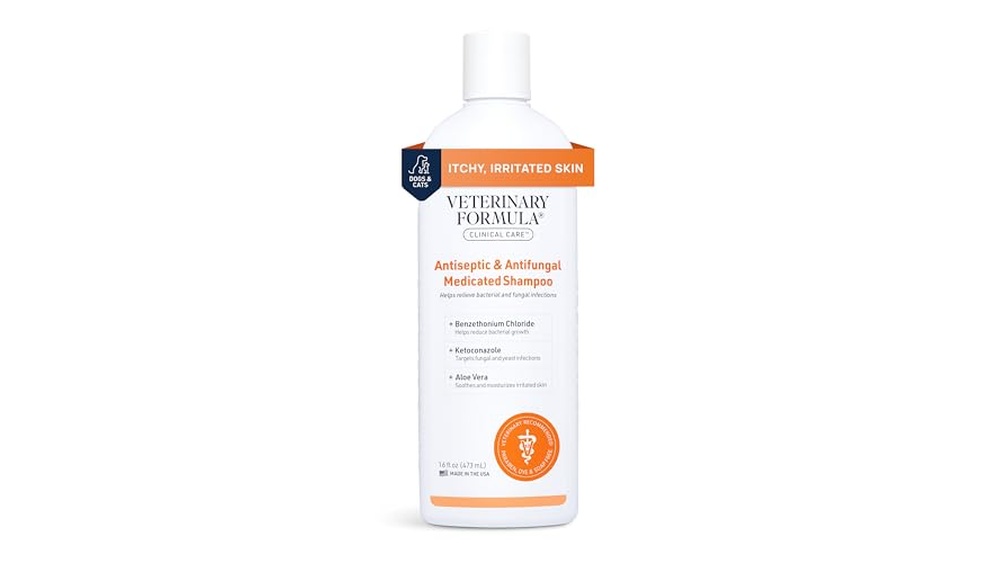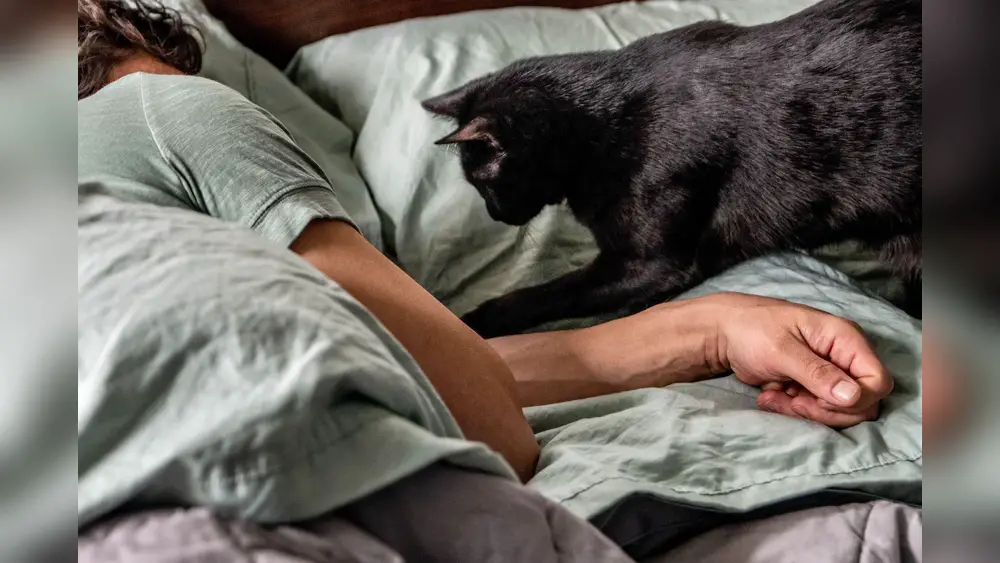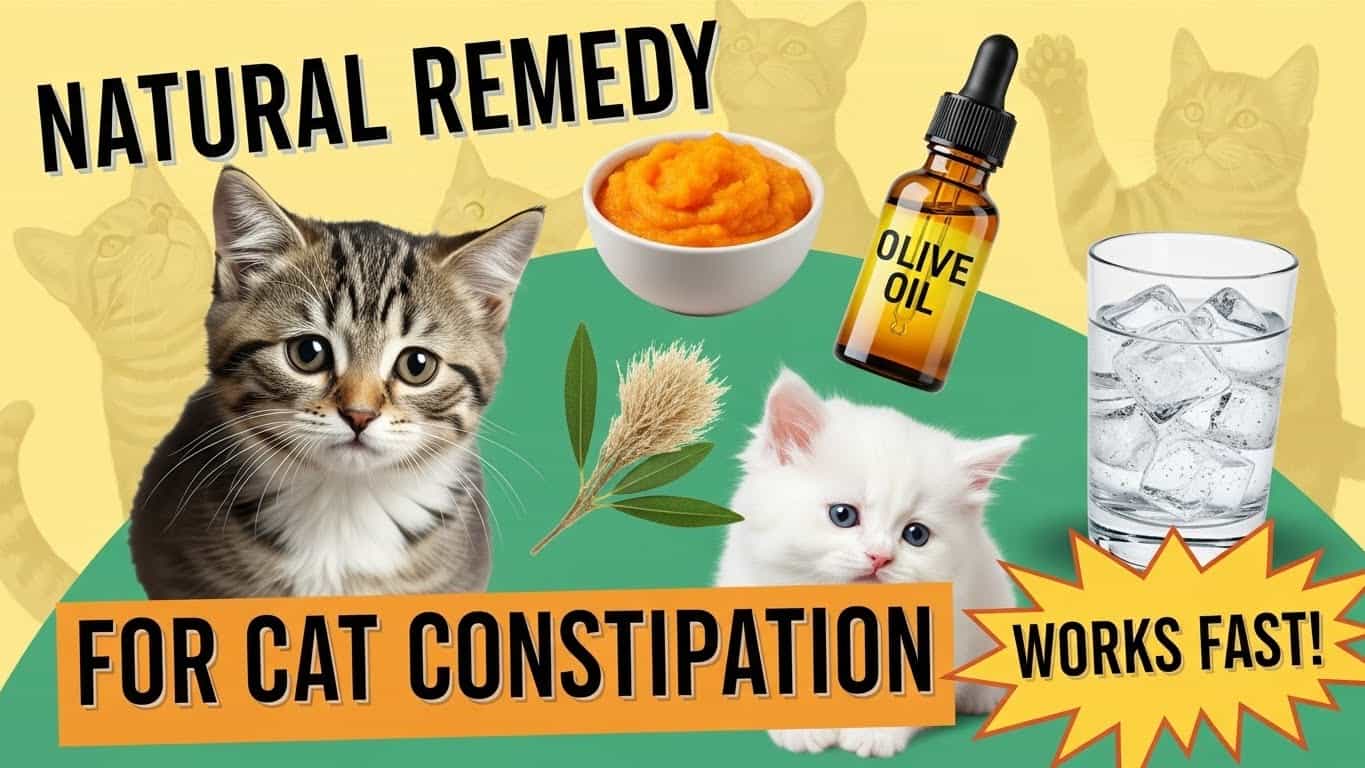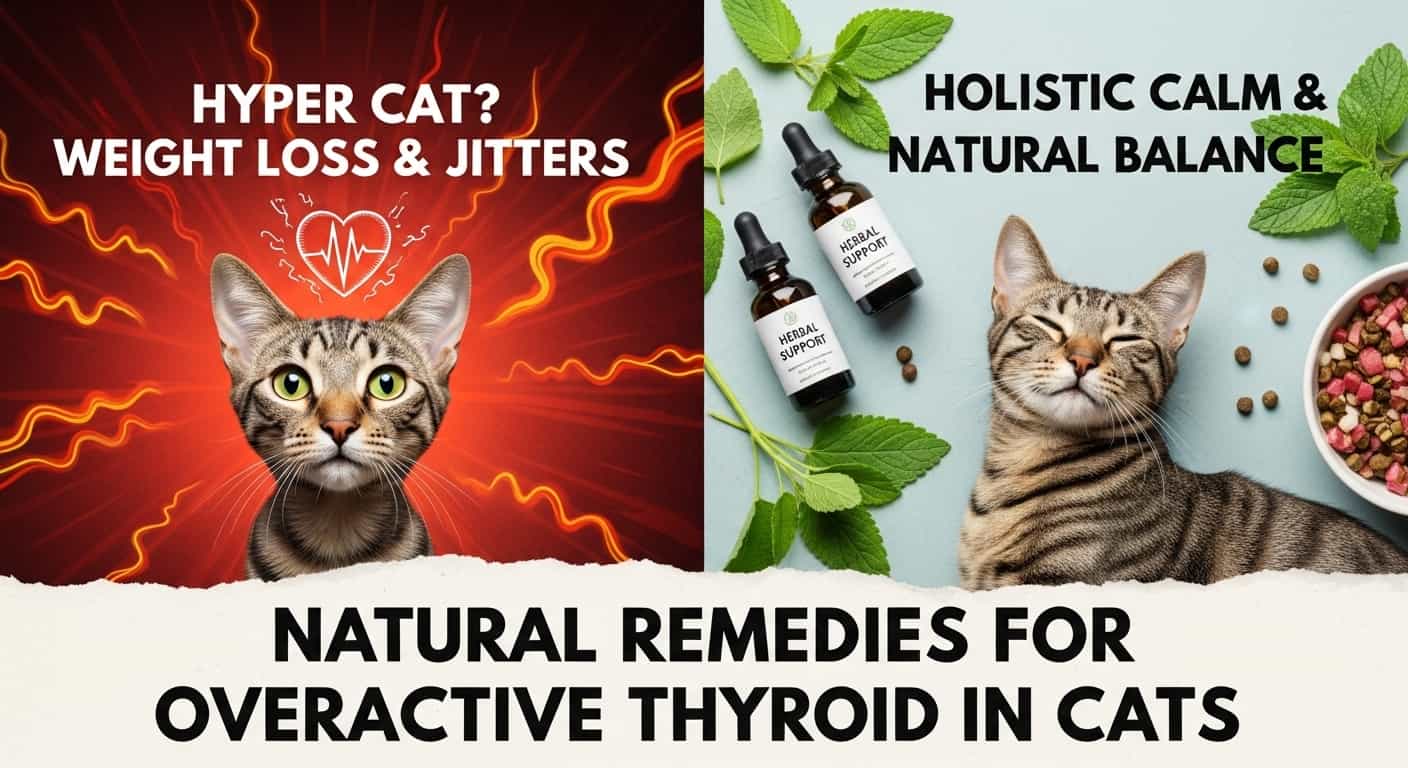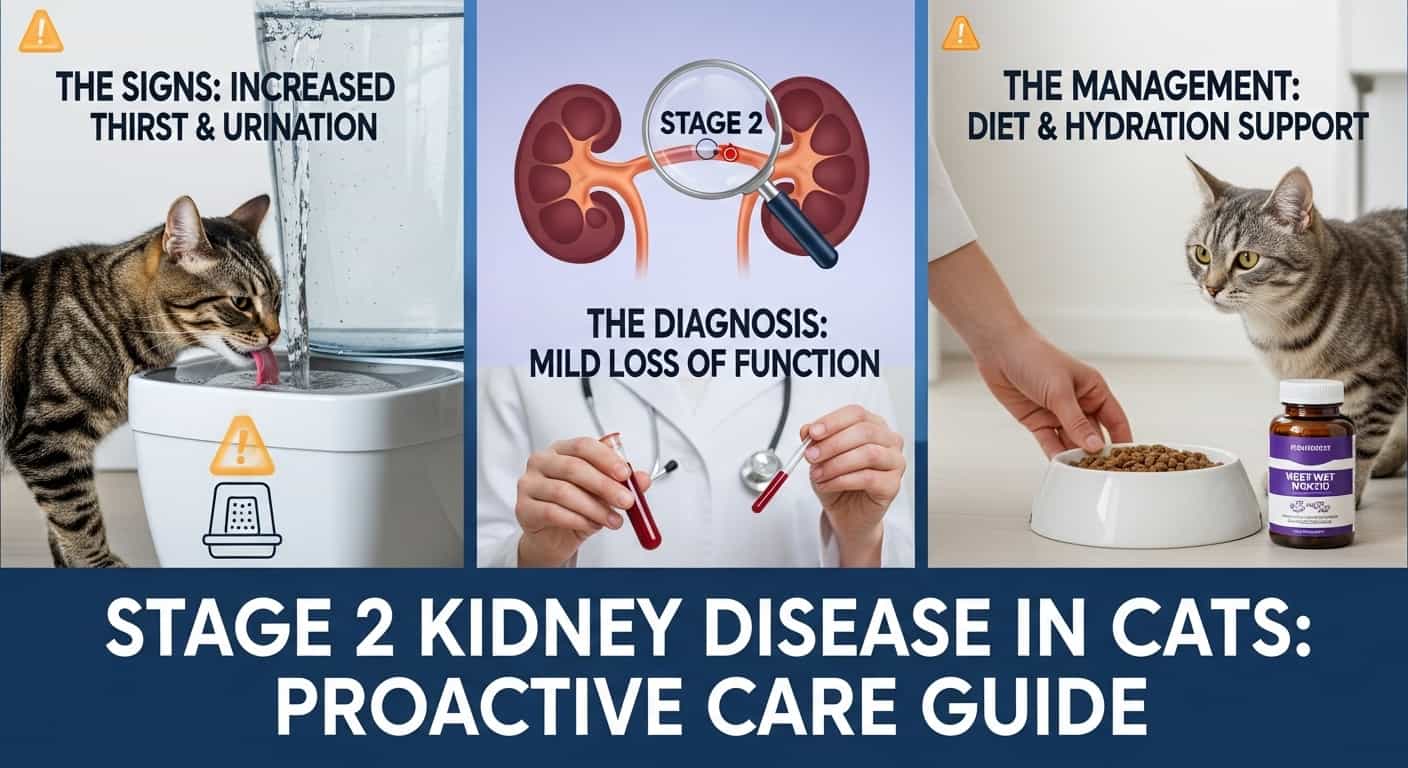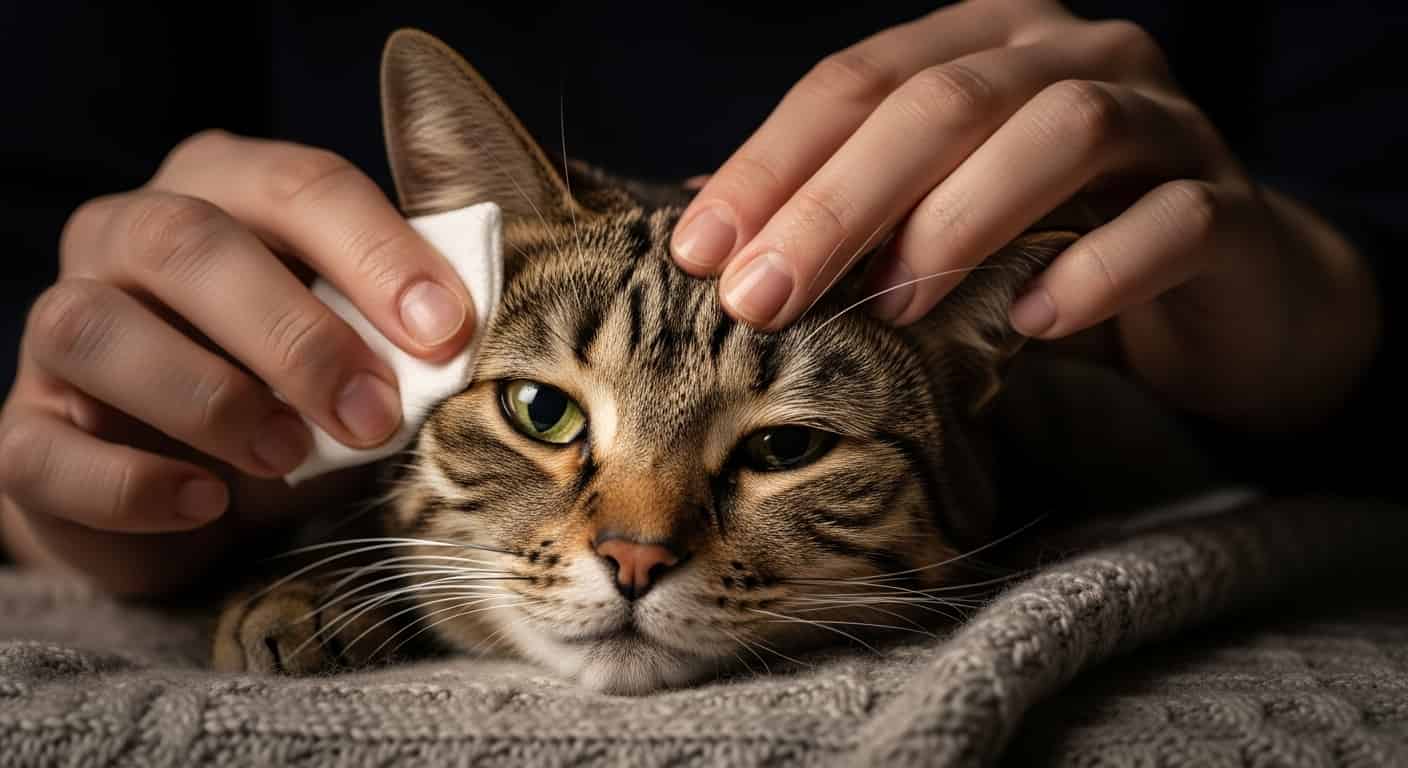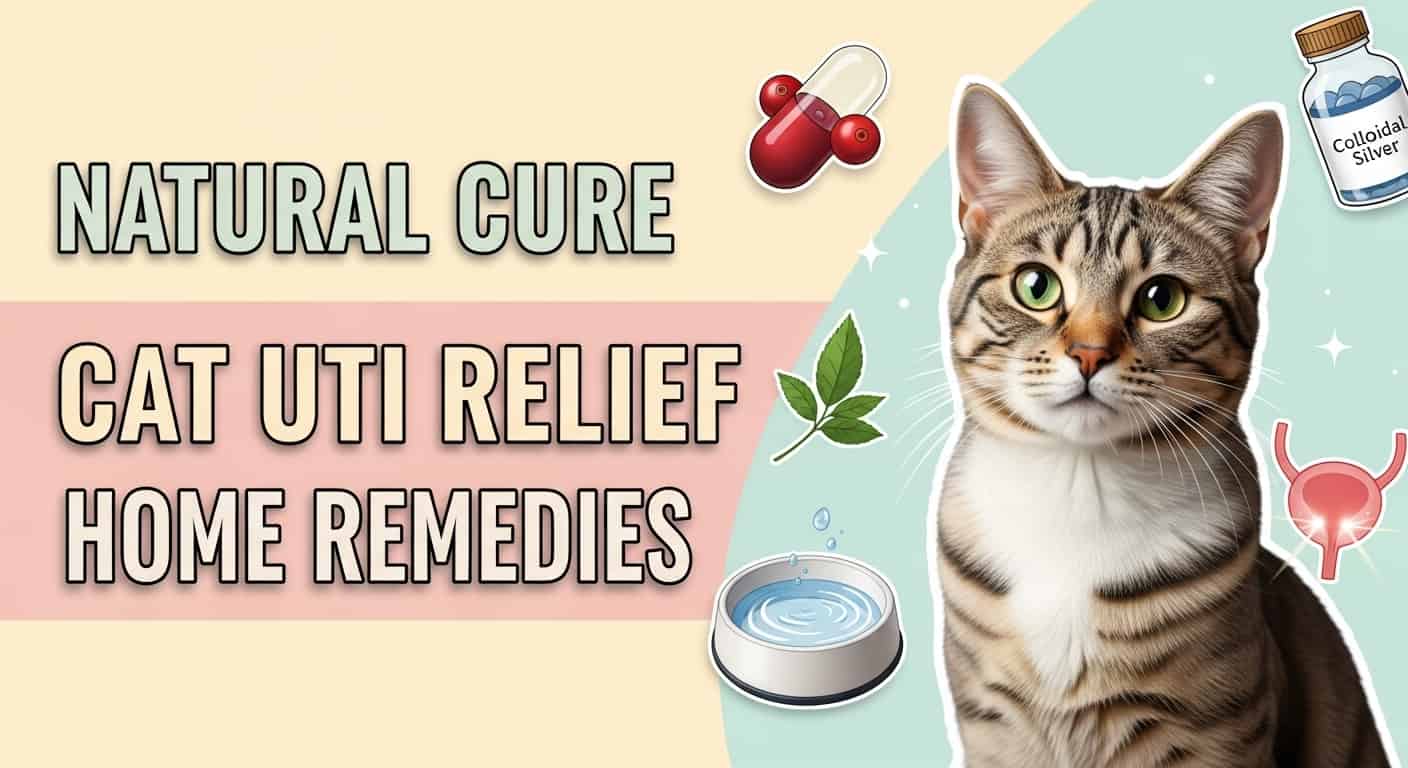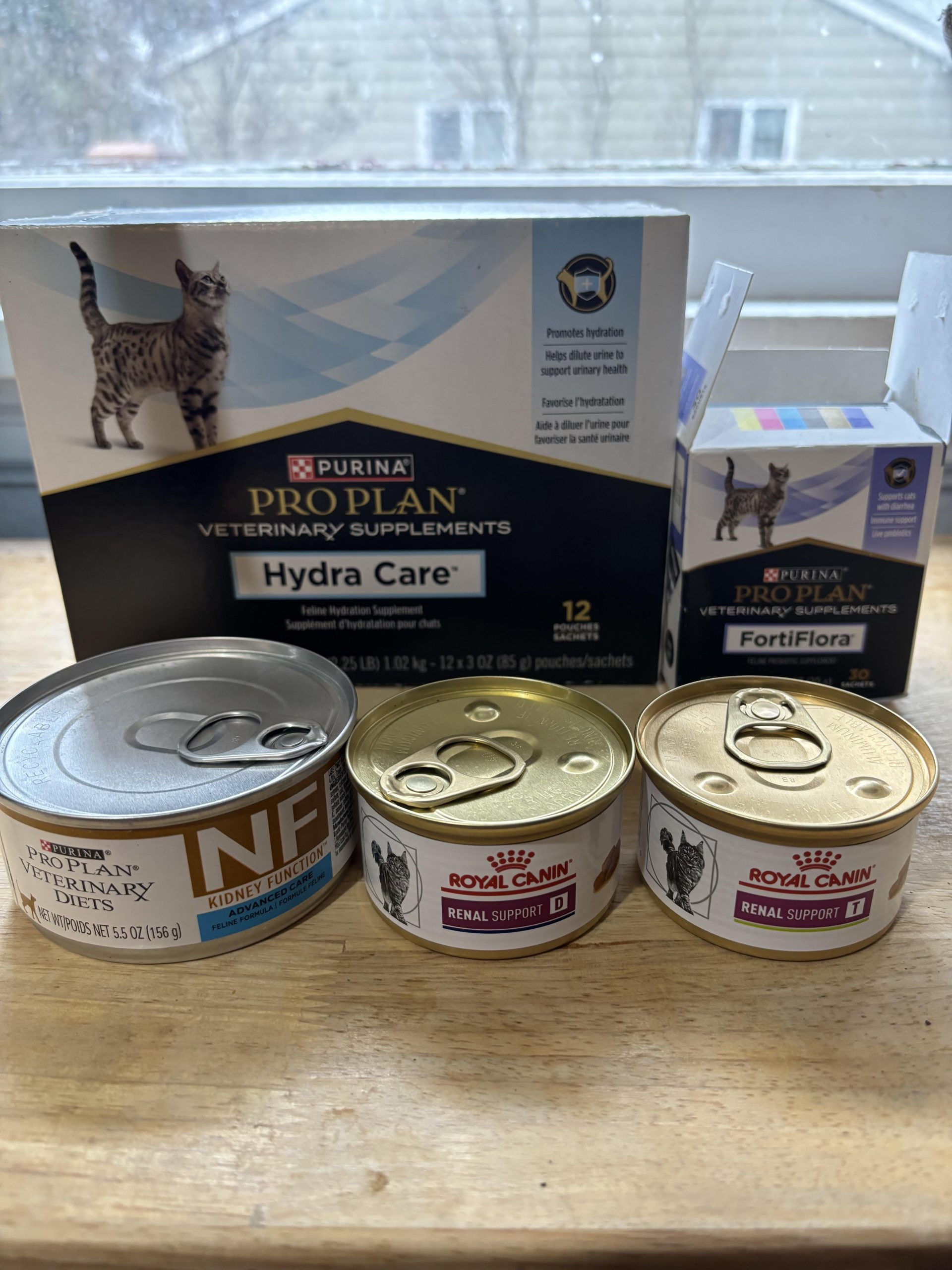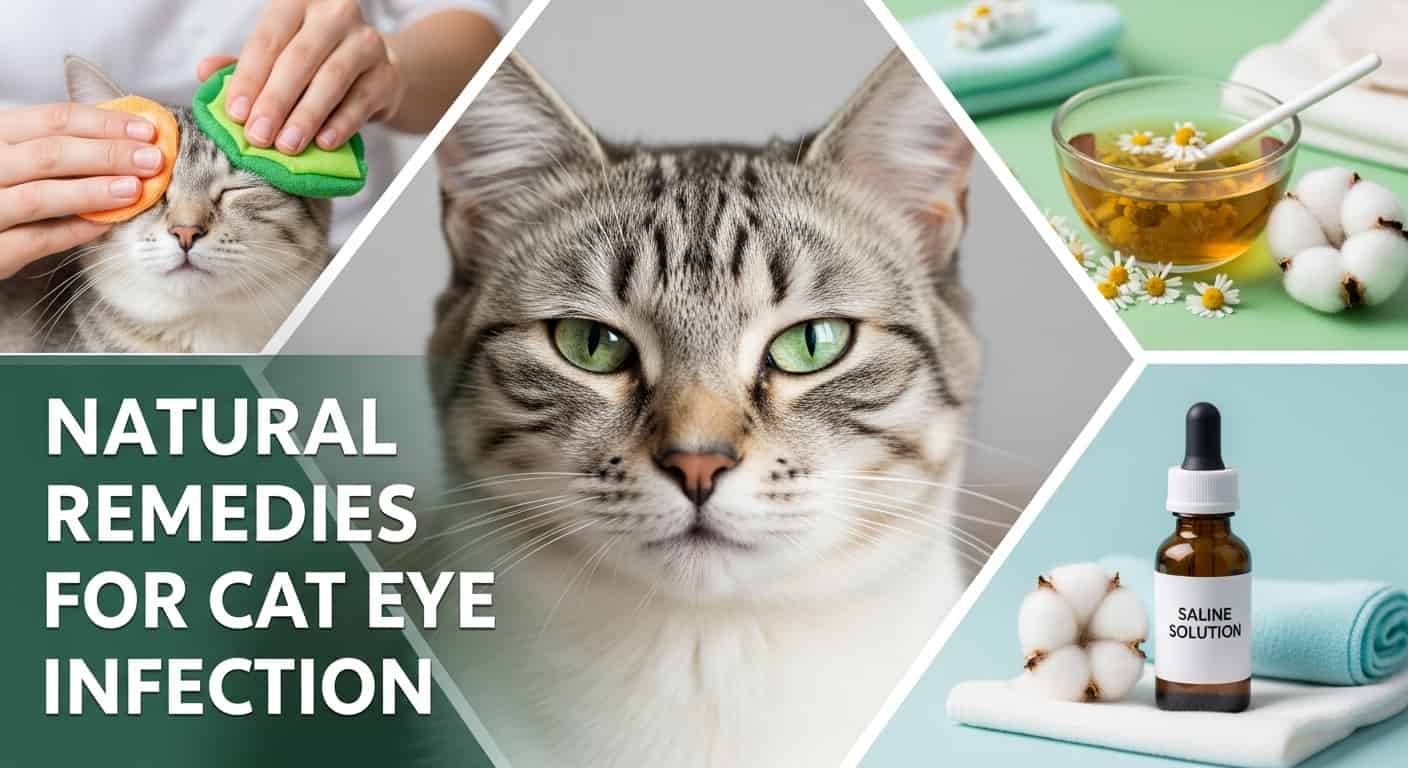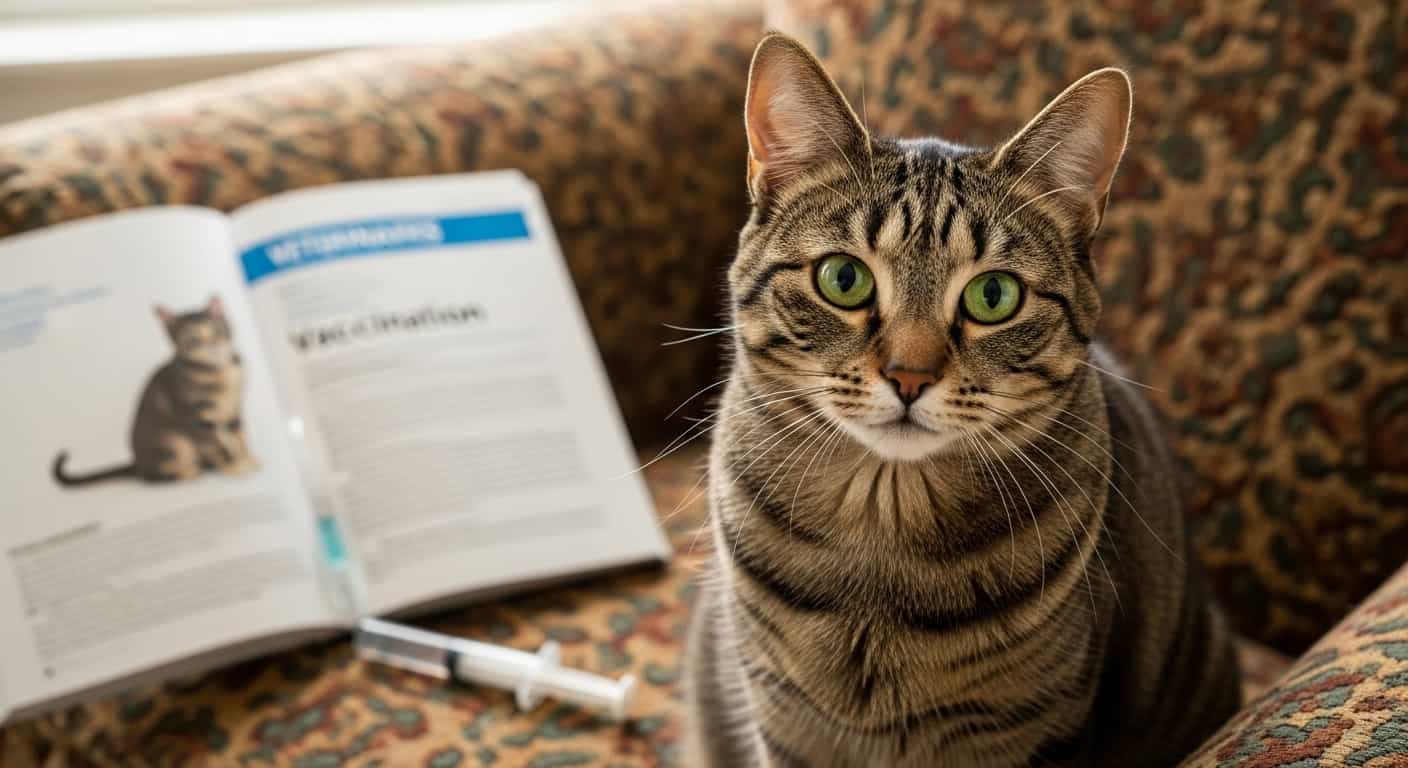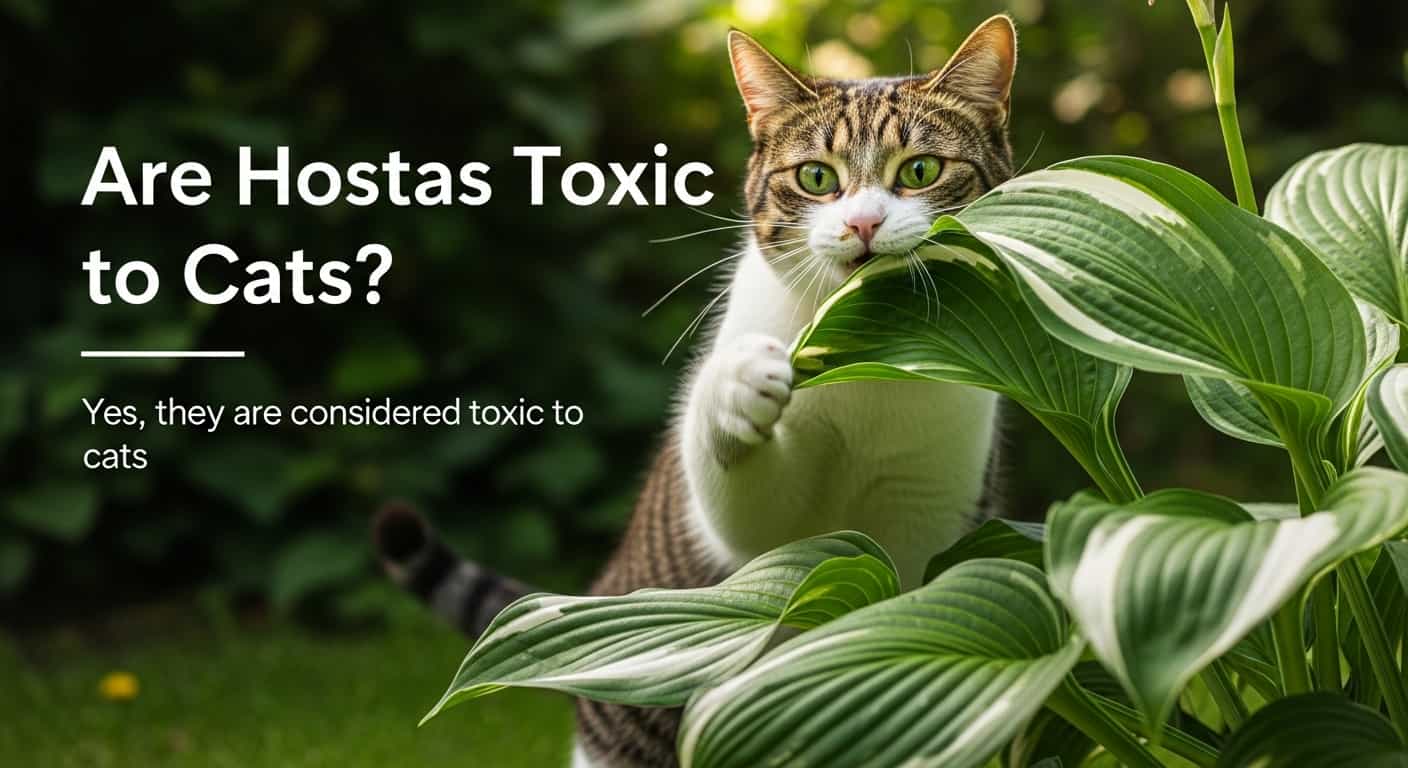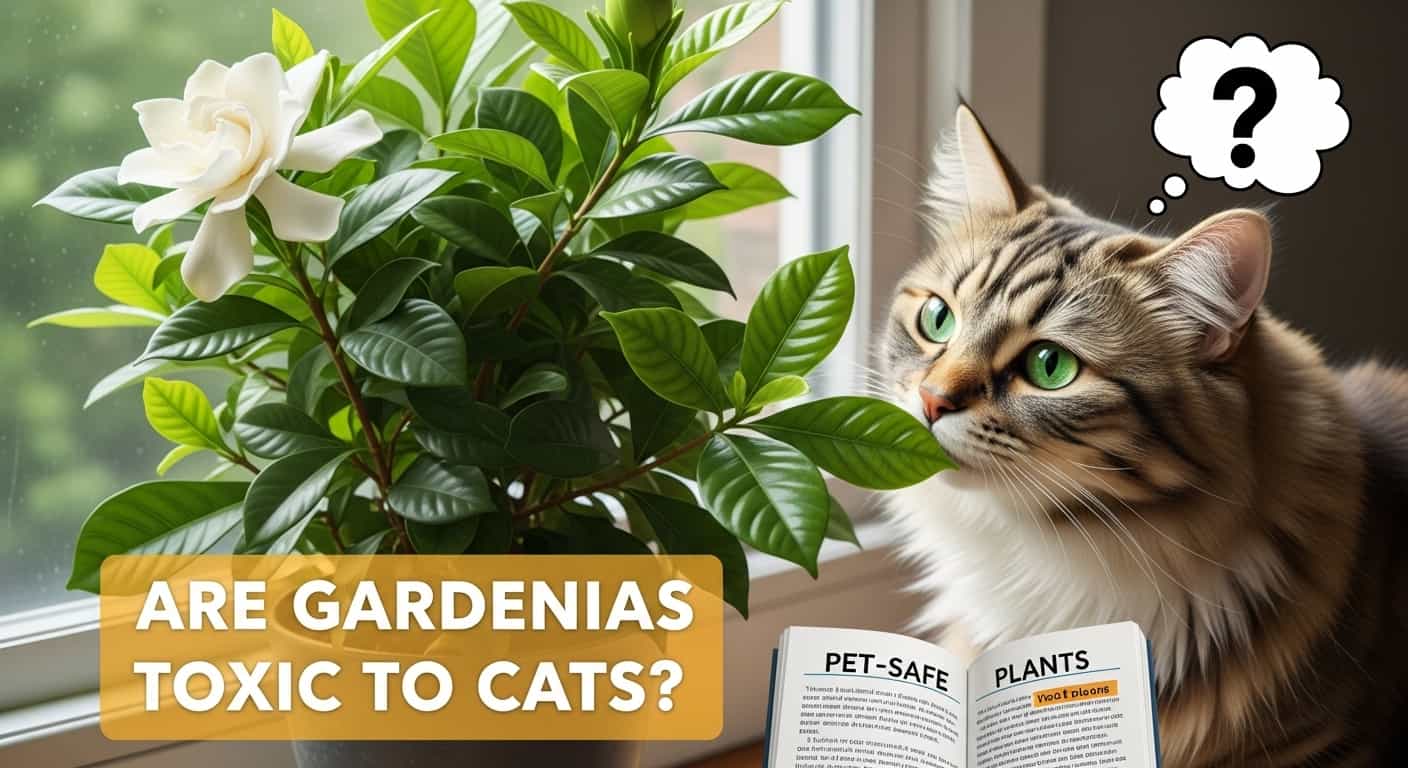Have you ever wondered if your indoor cat really needs a rabies vaccine? You might think that because your feline friend doesn’t venture outside, they’re safe from rabies.
Table of Contents
ToggleBut is that really the case? Understanding the risks and benefits of vaccinating your indoor cat against rabies is crucial for their health and your peace of mind. By the time you finish reading this, you’ll have the clarity you need to make an informed decision about your cat’s well-being.
Let’s dive into the facts and uncover why this vaccine might be more important than you think.
Rabies: A Threat To Indoor Cats?
Many people believe indoor cats are safe from rabies. They think staying inside keeps them protected. But is this true? Rabies is a serious disease. It affects the brain and can be deadly. While outdoor cats face higher risks, indoor cats are not entirely safe.
Even indoor cats can encounter rabies. How? Through unexpected encounters with bats or other animals. These animals might enter homes without warning. Sometimes, open windows or doors invite them in. Cats are curious creatures. They might approach these animals, risking exposure.
Understanding Rabies
Rabies is a viral disease. It spreads through bites or scratches. The virus targets the nervous system. Once symptoms appear, it is usually fatal. Prevention is crucial. Vaccination is the most effective defense.
How Indoor Cats Can Get Exposed
Indoor cats are not always safe from rabies. Wildlife can enter homes. Bats, raccoons, or other small animals might sneak inside. Open windows or pet doors are common entry points.
Cats may also escape outside. They might slip out during house cleanings or repairs. Once outside, they might encounter infected animals. This brief exposure can pose a risk.
Signs Of Rabies In Cats
Recognizing rabies symptoms is vital. Cats with rabies might show aggression. They may become unusually friendly. Excessive drooling or difficulty swallowing are signs. Paralysis in the legs or tail might occur.
Confusion or disorientation are other symptoms. If a cat displays these signs, it needs immediate veterinary attention. Early intervention is key.
Here's a related post that you might find useful. Natural Remedy for Constipation in Cats: Effective & Safe Solutions
Importance Of Vaccination
The rabies vaccine is essential for all cats. It acts as a protective shield. Vaccination reduces the risk of infection. It protects both the cat and the household.
Many regions legally require rabies vaccination. Keeping your cat vaccinated ensures compliance. It also provides peace of mind for pet owners.
Understanding Rabies Transmission
Indoor cats may seem safe, but rabies can still pose a threat. Wildlife or unvaccinated pets might expose them. Vaccinating indoor cats offers protection and peace of mind.
Understanding rabies transmission is crucial for pet owners, especially those with indoor cats. Rabies is a deadly virus that primarily spreads through the saliva of infected animals. This begs the question: how much risk does an indoor cat face? It’s easy to assume that cats kept inside are safe, but understanding how rabies spreads can change your perspective on vaccination.
Common Modes Of Infection
Rabies typically spreads through bites or scratches from infected animals. The saliva enters the bloodstream and the virus begins its destructive journey towards the brain. While outdoor cats are more exposed to wild animals, indoor cats might also be vulnerable. In rare cases, bats can enter homes through small openings. Imagine finding a bat in your living room! If an indoor cat encounters a bat, they could be at risk. Even a playful paw swipe can transmit the virus. This shows how important it is to consider the possibilities, even if they seem unlikely.
Risks For Indoor Cats
You might think that your indoor cat is completely safe. However, the reality is that unexpected situations can arise. What if your cat sneaks out the door and into the yard? A brief encounter with a stray animal could expose them to rabies. Consider the possibility of moving to a new area with a higher prevalence of rabies. Local wildlife could pose a threat, even to cats who never leave the house. Vaccinating your cat can provide peace of mind, knowing they are protected against unforeseen risks. As a cat owner, understanding these risks helps you make informed decisions. Have you ever had a moment where you realized your pet’s safety might not be as guaranteed as you thought? Share your experiences and insights in the comments.
Here's a related post that you might find useful. Natural Remedies for Overactive Thyroid in Cats: Effective & Safe Solutions
Rabies Vaccine: How It Works
The rabies vaccine is crucial for safeguarding your indoor cat against this deadly virus. You might wonder why your indoor cat needs it, but even the smallest risk of exposure makes it necessary. Understanding how the rabies vaccine works can reassure you about your pet’s safety and highlight its importance. Let’s dive into the nitty-gritty of the vaccine and its immunization process.
Vaccine Composition
The rabies vaccine consists of inactivated rabies virus particles. These particles are harmless but effective in teaching your cat’s immune system to recognize and combat the virus. Think of it as a rehearsal for their immune system, preparing it for a real encounter.
Manufacturers ensure the virus particles are inactive, meaning they cannot cause rabies. This safety measure is essential for your pet’s health. It allows the vaccine to safely build immunity without putting your cat at risk.
Immunization Process
The immunization process involves administering the vaccine via injection. After receiving the vaccine, your cat’s immune system springs into action. It identifies the inactivated virus particles as a threat and creates antibodies to fight them.
These antibodies act like vigilant guards, ready to defend your cat against future exposure to the rabies virus. The body remembers how to fight it, ensuring quick and effective response if needed.
Regular booster shots are essential to maintain this immunity. You might wonder why boosters are necessary, especially if your cat stays indoors. Imagine a scenario where an unexpected visitor, like a bat, sneaks in. Rabies can be transmitted from bats, posing a risk even in indoor environments.
So, what steps can you take? Schedule regular vet check-ups to keep your cat’s vaccinations up-to-date. This proactive measure ensures their immune system stays prepared for any surprise encounters.
Have you ever had a scare with your indoor cat and a wild animal? How did you handle it? Share your experiences, and let’s discuss how we can better protect our furry friends.
Legal Requirements For Rabies Vaccination
Indoor cats often face legal requirements for rabies vaccination. Many areas mandate these vaccinations, regardless of the cat’s lifestyle. Keeping your indoor cat vaccinated helps comply with laws and ensures their health and safety.
When it comes to indoor cats, many pet owners wonder if rabies vaccination is really necessary. While it might seem unnecessary for a cat that never steps foot outside, legal requirements can tell a different story. Understanding these regulations helps you make informed decisions and ensures you are compliant with the law.
State Laws And Regulations
Rabies vaccination laws vary by state, and it’s crucial to know what your local regulations mandate. In some states, all cats, regardless of their indoor or outdoor status, must be vaccinated against rabies. This can come as a surprise, especially if you assumed indoor cats were exempt. For instance, states like New York and Texas require all cats to be vaccinated, while others may have more lenient laws. Checking with your local veterinarian or animal control office is a smart move to ensure your furry friend is up to date with state laws.
Consequences Of Non-compliance
Failing to vaccinate your indoor cat can lead to serious consequences. You might face fines or penalties if you do not adhere to the legal requirements. This can be both financially draining and stressful. Moreover, there are health risks involved. If your cat accidentally escapes and encounters a rabid animal, the lack of vaccination could lead to dire health consequences. Are you willing to take that risk? Ensuring your cat’s vaccination is up to date not only keeps you within the legal bounds but also protects your pet’s health and your peace of mind. Have you checked your state’s rabies vaccination requirements lately? It might be time for a quick review.
Health Benefits Of Vaccinating Indoor Cats
Vaccinating indoor cats against rabies ensures their safety from potential exposure to the virus. Even indoor cats can unexpectedly encounter wildlife or escape outside, posing a risk. Protection from rabies supports their overall health and prevents serious illness.
Vaccinating your indoor cat is a crucial step in ensuring their overall health. While they may not roam outdoors, the risk of rabies is still present. Vaccination plays a vital role in safeguarding not only their well-being but also yours. Consider the health benefits of vaccinating your indoor cat, and you’ll find peace of mind knowing that they are protected.
Protection Against Rabies
Rabies is a deadly virus that can affect all mammals, including indoor cats. Your cat might not venture outside, but there are still scenarios where they could be exposed. Imagine a bat sneaks into your home or an unexpected pet visitor carries the virus. Vaccinating your cat ensures they are protected against these unforeseen risks. A rabies vaccine is not just about following regulations; it’s about securing your pet’s life. Even with minimal exposure, a single bite or scratch from an infected animal can be fatal. Vaccination acts as a shield, keeping your cat safe from this dangerous threat.
Overall Health Maintenance
Vaccinating your indoor cat contributes to their overall health maintenance. Regular vaccinations can lead to a healthier immune system. This means fewer illnesses and a happier, more active pet. Think of it as a small step for long-term health benefits. When was the last time your cat had a check-up? Vaccinations are an essential part of preventive care that can save you time and worry in the long run. Moreover, vaccination appointments can serve as an opportunity for a complete health check. During these visits, veterinarians can spot potential health issues early on. Keeping your cat’s vaccinations up-to-date is a simple yet effective way to ensure their well-being. Have you ever considered how much joy your cat brings into your life? Protecting their health is not just about them; it’s about preserving the bond you cherish. Vaccination is a proactive measure that supports your cat’s health journey.
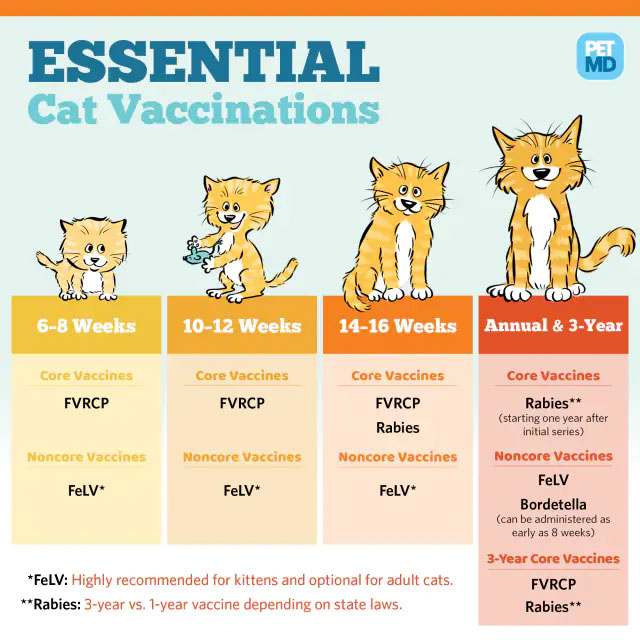
Credit: homeatlastrescue.ca
Potential Risks And Side Effects
When considering whether indoor cats need a rabies vaccine, you might worry about potential risks and side effects. Vaccines, like any medical treatment, can cause reactions. Understanding these can help you make informed decisions for your feline friend. It’s crucial to weigh the benefits against the possible downsides. Let’s dive into what you might expect after your cat receives a rabies vaccine.
Common Side Effects
After vaccination, your cat might experience mild side effects. These are generally harmless and temporary. You may notice slight swelling at the injection site or a bit of soreness. Your cat might also seem tired or less active for a day or two. It’s similar to how you feel after a flu shot.
Occasionally, cats might have a small appetite or slight fever. These symptoms usually resolve quickly. Most cats bounce back to their lively selves within a day. Have you ever noticed similar effects in your pet after other vaccinations?
Rare Complications
While rare, some cats can experience more serious reactions. It’s essential to be aware of these so you can act promptly if needed. Allergic reactions might occur, leading to symptoms like facial swelling or difficulty breathing. In extreme cases, your cat could experience anaphylaxis.
Another possible complication is a condition called vaccine-induced sarcoma. This is a type of tumor that can develop at the injection site. Fortunately, this is extremely rare. It’s always wise to monitor your cat after vaccination, especially if they’ve had reactions in the past. Have you ever had to rush to the vet for an unexpected issue?
Deciding to vaccinate your indoor cat involves careful consideration. Weigh the risks with the protective benefits. If you’re unsure, consult with your vet. They can provide tailored advice based on your cat’s health and lifestyle. Would you rather prevent potential exposure or risk the rare side effects?
Veterinary Recommendations
When considering whether indoor cats need a rabies vaccine, understanding veterinary recommendations is crucial. Rabies is a serious viral infection that affects the nervous system, and while indoor cats are less exposed, they aren’t completely immune to the risk. Veterinary professionals offer insights that help cat owners make informed decisions about vaccinating their feline friends.
Expert Opinions
Veterinarians generally recommend rabies vaccination for all cats, including those that stay indoors. They argue that unexpected situations, like a bat entering your home, could expose your cat to rabies. Moreover, in many areas, rabies vaccination is legally required for all pets, ensuring public safety and the well-being of your cat.
Some experts also suggest that indoor cats might have occasional outdoor exposure, whether through a brief escape or supervised outdoor time. This exposure increases the risk, making vaccination a preventive measure worth considering. Consulting with your vet can provide tailored advice based on your cat’s lifestyle and local regulations.
Best Practices For Cat Owners
As a responsible cat owner, you want to ensure your furry friend’s health and safety. Regular veterinary check-ups are a good practice, where you can discuss the need for vaccinations. It’s also wise to keep track of local wildlife activity, as this can affect your pet’s risk level.
Consider scheduling annual vet visits to reassess your cat’s vaccination needs. Even if your cat is strictly indoors, vaccination can protect against unforeseen events. Are you aware of your local laws regarding pet vaccinations? They may require you to vaccinate your cat, regardless of its indoor status.
Finally, think about the peace of mind that comes with knowing your cat is protected. Once, a friend’s indoor cat managed to sneak out and encounter a stray animal. Thankfully, the cat was vaccinated, preventing any health risks. This story highlights the unpredictable nature of pets and why preventive care is beneficial.
Ensuring your cat receives a rabies vaccine could be one of the simplest yet most effective steps you take for their health. Have you considered the potential risks your indoor cat might face? Vaccination is a small action with a big impact on your pet’s safety.
Alternatives To Rabies Vaccination
Indoor cats live sheltered lives. They face fewer risks than outdoor cats. Yet, rabies remains a concern for some owners. Alternatives to rabies vaccination exist for those worried about side effects. These options focus on prevention and lifestyle changes.
Indoor Lifestyle Adjustments
Enhance your cat’s indoor environment. Create a safe space for them. Ensure windows and doors are secure. This prevents any accidental escapes. Add screens to open windows. Check them regularly for any damage. Keep your cat entertained indoors. Provide toys and climbing structures. A content cat is less likely to wander outside.
Preventive Measures
Regular check-ups are vital for indoor cats. Schedule routine visits with your vet. Discuss your concerns about rabies. A veterinarian can offer tailored advice. Keep your cat’s health in top shape. A healthy cat has a stronger immune system. Consider additional vaccines for other diseases. Maintain a clean home environment. Limit your cat’s exposure to unknown animals. This reduces the risk of infection.
Making An Informed Decision
Deciding whether your indoor cat needs a rabies vaccine isn’t as simple as it might seem. You want to ensure your feline friend is safe while also considering their specific lifestyle. It’s crucial to gather all the necessary information before making this decision. This involves understanding the benefits and potential drawbacks, as well as seeking expert advice.
Weighing Pros And Cons
Start by looking at the benefits. Rabies is a deadly disease, and vaccinating your cat could be a lifesaver. Even indoor cats might escape or encounter a rabid animal brought in by another pet. The vaccine also protects humans by reducing the risk of transmission.
However, there are cons to consider. Some cats might have a reaction to the vaccine, ranging from mild discomfort to more serious side effects. You need to weigh these risks against the likelihood of exposure to rabies.
Consulting With A Vet
Having a conversation with your vet is a critical step. They know your cat’s health history and can provide guidance based on your cat’s specific needs. Ask them about the prevalence of rabies in your area, as it varies significantly from one region to another.
Your vet might also share stories of similar cases they’ve handled. This firsthand information can offer valuable insights. Don’t hesitate to ask questions—your cat’s health is worth the extra effort.
Ultimately, the choice is yours. Consider the risks, benefits, and expert advice before making your decision. Have you consulted with a vet yet, or are you still weighing the options? Your cat’s safety is in your hands, and an informed decision is a responsible one.
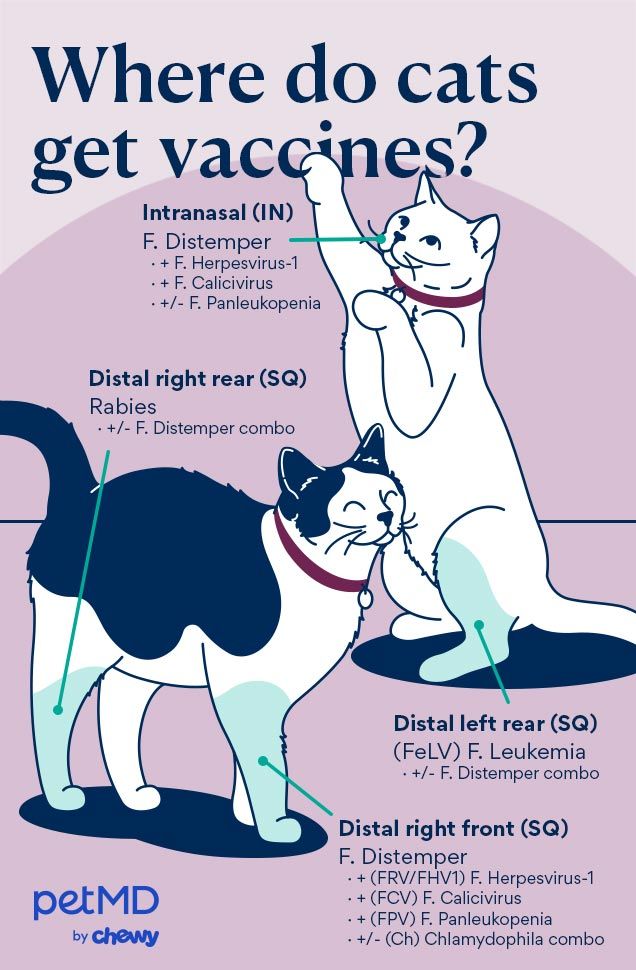
Credit: www.petmd.com
Frequently Asked Questions
Do Indoor Cats Need Rabies Vaccine?
Yes, indoor cats still need rabies vaccines. Rabies is a fatal virus that can affect cats. Even indoor cats can occasionally escape or encounter wild animals. Vaccination is essential for their protection. It also complies with legal requirements in many regions.
Consult with your vet for a vaccination schedule.
How Often Should Indoor Cats Get Rabies Shots?
Indoor cats should receive rabies vaccinations every one to three years. The frequency depends on the type of vaccine used. Some vaccines provide immunity for one year, while others last three years. Always follow your veterinarian’s recommendations to ensure your cat’s protection remains effective.
What Happens If A Cat Doesn’t Get A Rabies Shot?
If a cat doesn’t receive a rabies shot, it’s at risk of contracting the virus. Rabies is almost always fatal once symptoms appear. Additionally, unvaccinated cats may face legal consequences. Authorities might require quarantine or other measures. Vaccination is the best way to protect your cat and comply with laws.
Can Indoor Cats Be Exposed To Rabies?
Yes, indoor cats can still be exposed to rabies. They might escape or have contact with infected animals. Wildlife, like bats, can enter homes and pose a risk. Ensuring your cat is vaccinated protects them from this deadly virus. It also helps prevent potential transmission to humans.
Conclusion
Rabies vaccines for indoor cats are important. They ensure your pet’s safety. Rabies is a dangerous disease. Even indoor cats can be at risk. Vaccines protect them from unexpected exposure. They also follow legal requirements in many places. Talk to your vet about the best plan.
Keep your cat healthy and safe. Vaccination is a simple step. It provides peace of mind. It’s a small effort for a big benefit. Always prioritize your cat’s well-being. Stay informed and proactive. Your furry friend deserves the best care.

